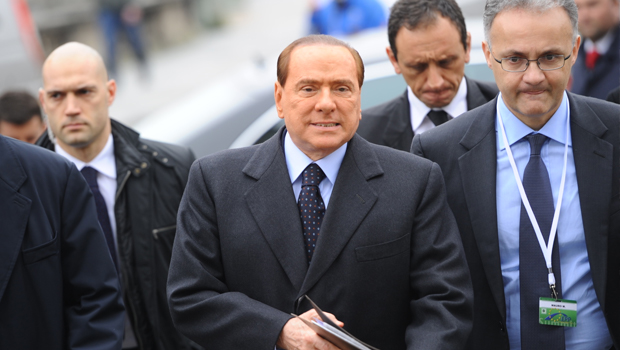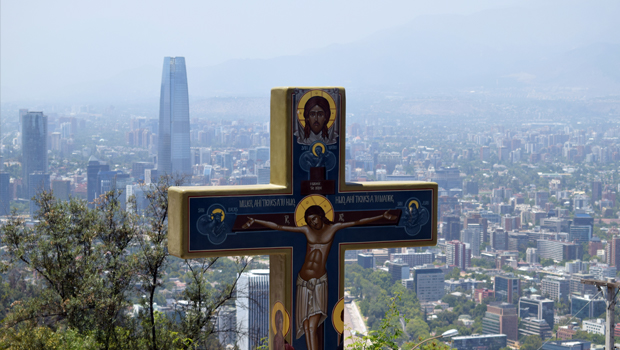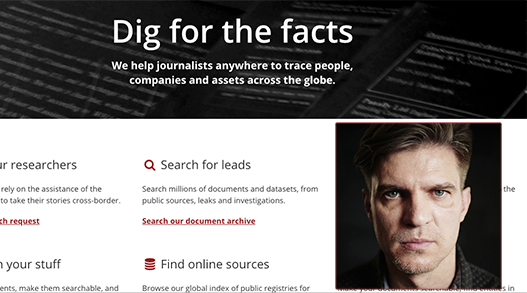On Wednesday Italy’s Parliament temporarily halted work as the political party of former Prime Minister Silvio Berlusconi protested a court decision that schedules a ruling before the end of July in a tax-fraud case that could ban him from holding public office.
The interruption in legislative activity was the latest in a series of developments reflecting Berlusconi’s scandal-tarred legacy.
In October, he was sentenced to four years in jail in the tax-fraud case, and an Italian court later rejected his appeal in the case.
For over 30 years, famed Italian journalist Leo Sisti has investigated corruption, politics, terrorism and organized crime in Italy. He was the first to reveal that Berlusconi’s company owned the offshore company, All Iberian, used to bribe the late former Italian Prime Minister Bettino Craxi.
At an Investigative Reporters and Editors conference in San Antonio in June, Sisti explained how he negotiates access to judicial records in Italy to break stories for his Italian newsmagazine, L’Espresso. Below is an edited version of his talk.
This is the latest in our “Secrets of the Masters” series about how great investigative reporters do their work.
Getting hold of judicial records in criminal investigations in Italy
I used to get to the court in Milan in the morning, bringing along an empty briefcase. In the evening my briefcase was full of paper documents. Now I don’t need a briefcase anymore. I only bring a USB key: at the end of the day it will be filled with documents in electronic format.
Technology changes, but keep in mind two important questions for investigative reporters, not just in Italy but everywhere: How do you get hold of judicial records, especially when an investigation is under way? Who are the leakers of documents in a criminal investigation?
These are my sources: prosecutors, clerks, attorneys and law-enforcement officers, including carabinieri, a special army force, and guardia di finanza, or financial police.
The most important asset for a reporter is the “human touch.” It means becoming familiar with all the sources in the field. It means that a special technique is necessary to reach my goal of obtaining documents. Drinking coffee or having dinner with my sources is vital to cultivating important conduits of information. It’s a technique that is not workable overnight. It’s a technique that requires patience and time: months, years.
Prosecutors are the engine of an investigation. Law-enforcement officers depend totally on them and, during the investigation, are not entitled to report any results of the investigation to their bosses.
For reporters, it is not difficult to talk to prosecutors. They are bound to secrecy, but nevertheless can give some useful hints, although not documents. When I talk to them, I don’t write down notes. That might make them nervous because notes can provide evidence of a relationship. As soon as I have finished talking to them, I sit down in a court corridor to write my notes based on those conversations. Sometimes prosecutors ask me a question: “Have you talked to that investigator or that attorney?” It’s the signal that I should contact the right guy who can leak more or provide documents.
At l’Espresso newsweekly magazine, I’ve been a special correspondent for criminal investigations. I use my proven technique all the time. The following are two criminal cases that allowed me to produce good scoops, while tracking slush funds scattered in tax havens used to dodge taxes in Italy.
The Berlusconi Case
Silvio Berlusconi is the former four-time Prime Minister. Last May he was sentenced to four years in jail by the Milan Appeals Court for tax fraud. It is important to note that the ruling also bans him from holding public office for five years. In this case he would lose his seat in the Senate.
 In order to take effect, that ruling must be upheld by a higher court, the Court of Cassation. But even if this happens, Berlusconi will not go to jail. As prime minister, he anticipated that he could be one day condemned and arrested, so in 2006 he promoted legislation approved by Parliament that grants him amnesty, remitting three years out of four.
In order to take effect, that ruling must be upheld by a higher court, the Court of Cassation. But even if this happens, Berlusconi will not go to jail. As prime minister, he anticipated that he could be one day condemned and arrested, so in 2006 he promoted legislation approved by Parliament that grants him amnesty, remitting three years out of four.
Berlusconi’s tax fraud case began in 2003. It lasted 10 years because from time to time Berlusconi promoted laws designed to allow him to escape from trials.
Berlusconi is an entrepreneur who built a media empire, mainly consisting of publishing houses and TV channels. During the early 1990s Berlusconi used his Fininvest company to buy rights to broadcast movies and TV shows produced by Hollywood majors: Paramount, MGM, 20th Century Fox, Warner Bros, MCA Universal. Fininvest negotiated for TV rights of 3,000 movies using offshore companies and many fictitious intermediaries, one of which was a Berlusconi associate by the name of Frank Agrama, an American of Egyptian descent. It was a chain fragmented through 13,000 contract routes, going from Hollywood to dummy companies based in the British Virgin Islands, Hong Kong, Panama, Isle of Man and Malta before reaching Fininvest in Milan.
Take the film, “The Indian in the Cupboard,” a 1995 fantasy sold by Paramount on Oct. 23, 1996 to an intermediary for $350,000. After passing through many channels it landed in Milan on the same day with Fininvest, which paid $500,000. Or take “King of the Gypsies,” a 1978 production with Eric Roberts, which was sold by Paramount on June 4, 1997 for $25,000. On the same day, after many passages, Fininvest paid out $150,000.
Testimony by Douglas Schwalbe, a top manager at 20th Century Fox, was fateful for Berlusconi: “Basically, the Berlusconi empire works as an elaborate shell game to avoid Italian taxes.”
Judges in Milan said that Berlusconi dodged $368 million in taxes, the result of extra costs added on in tax havens in what was an enormous fraud. Because of the lapse of time allowed the statute of limitations to run out on many of his transactions, he is liable in the criminal case for only $7.3 million out of the $368 million. (He could face stiffer financial penalties in civil proceedings.)
The ‘Laundry’ in the Vatican
The bank of the Vatican is Istituto Opere di Religione (Institute for Religious Works). It’s a foreign bank based in Italian territory. It’s a real offshore bank which has been used many times to launder money. In one case it laundered money of the Mafia, according to statements made by the son of a famous Mafioso.
But this is only speculation. Those statements have never been proven in courts. What instead has been proven in court is that in the 1990s, the Vatican bank was used to launder 90 billion liras in a huge scandal of corruption involving a former prime minister of Italy.



